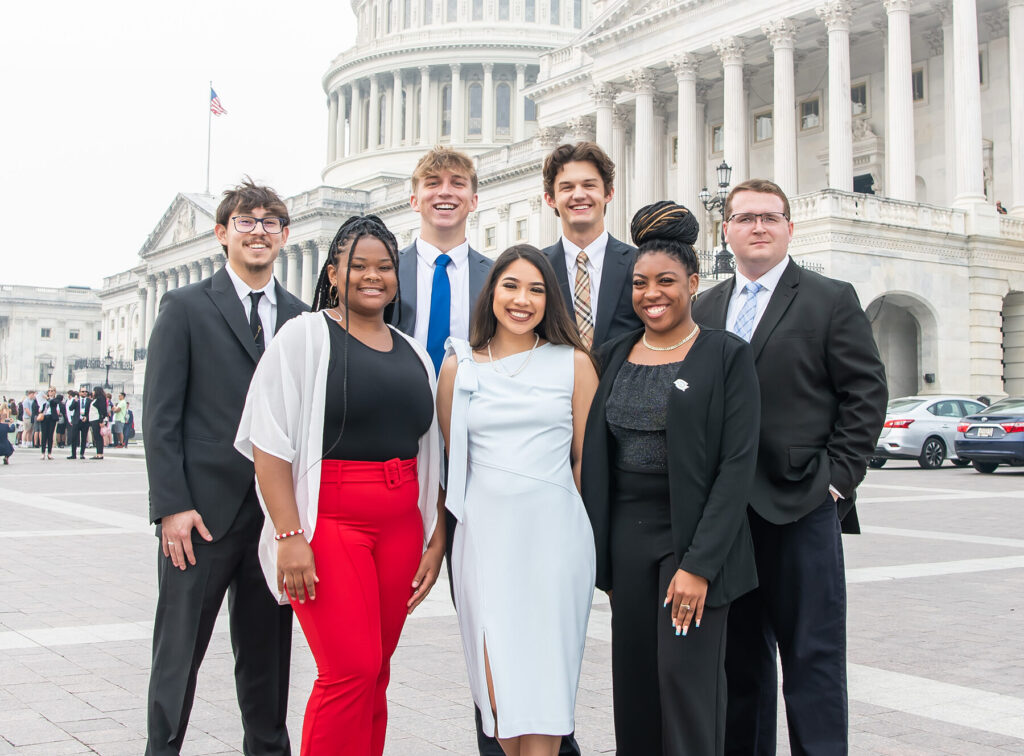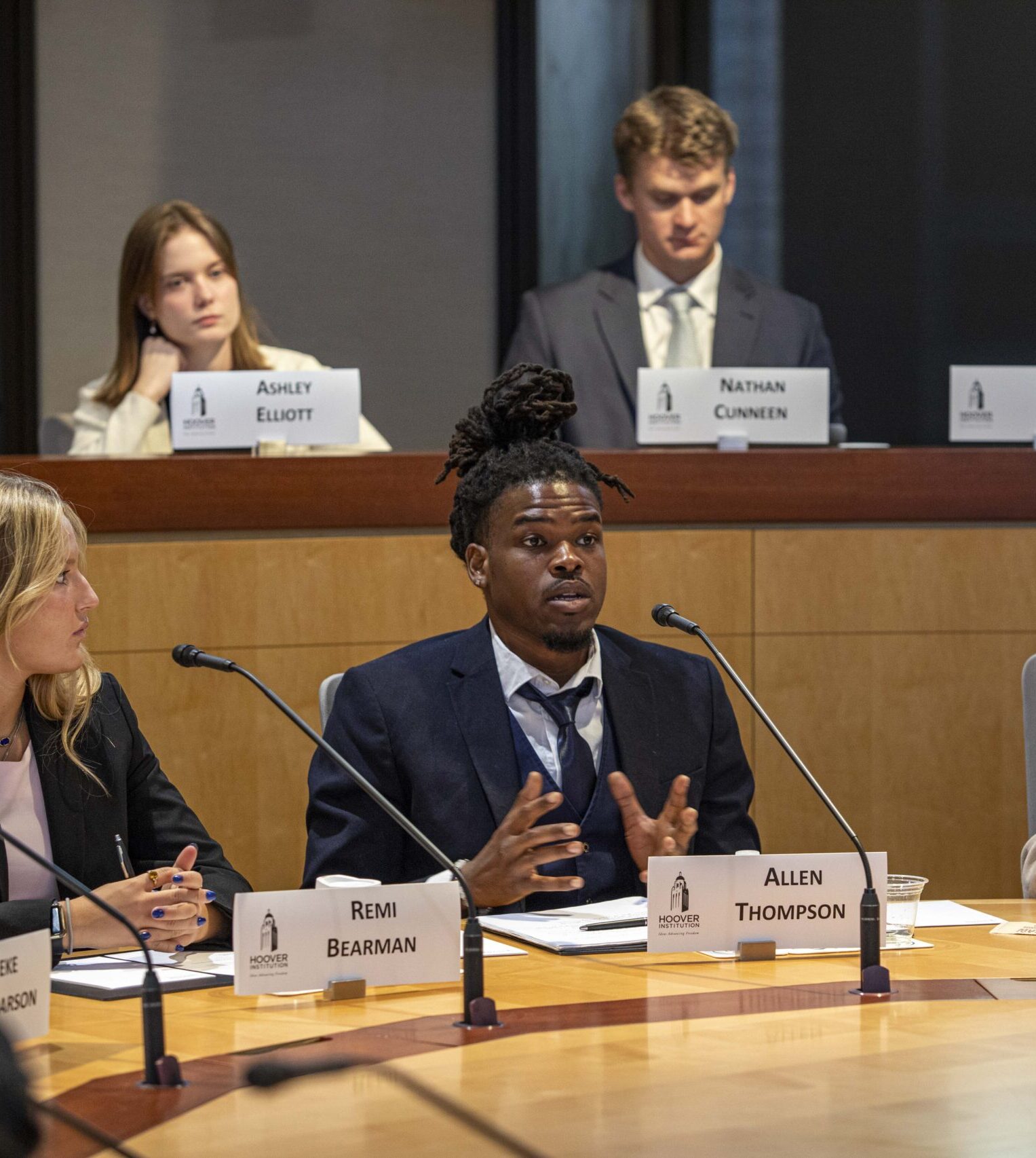
AFC’s Future Leaders Fellowship is designed to identify and develop tomorrow’s leaders in the educational choice movement, those who can speak best to its urgent need and potential: the men and women who credit school choice for changing their lives.
This twelve-month advocacy training program is for graduates of publicly created K-12 school choice programs. The fellowship is designed to identify and develop tomorrow’s leaders in the educational choice movement.
Future Leaders Fellows learn from recognized experts in communications and policy through a series of in-person and virtual training sessions. Fellows also engage with elected officials and the political process, understanding what it takes to expand educational choice through policy change. Finally, the program includes extensive professional development and networking opportunities, preparing fellows to enter a career in advocacy. Ultimately, and with ongoing support from AFC, fellows will be empowered to use their voice as a powerful force for change, now and into the future.


A FUTURE LEADERS FELLOW IS SOMEONE WHO IS:
A leader with the desire to be a force for positive change.
A graduate of a publicly funded K-12 school choice program.
A current college student who is at least 18 years old.
Willing to share his or her story and be a voice for educational choice.
Interested in a future career in educational choice advocacy.
Available to travel at least three times during the twelve month program for a period of 2-3 days each.
Committed to participating in monthly virtual training sessions, including completion of all program assignments.
Committed to the mission and values of AFC and the Future Leaders Fellowship Program.
2026 FELLOWS ARE ELIGIBLE FOR:
A $3,000 stipend.
Expense paid trips to New Orleans, Washington D.C. and Palo Alto.
The potential for college credit and/or professional internships.
For three decades reformers have fought to expand school choice in America and to give families more options when it comes to the education of their children. Thanks to the dedication of advocates, educators, civil rights leaders, and elected officials, today more than six hundred thousand children are benefitting from the 65 publicly funded K-12 private school choice programs in 31 states, plus DC and Puerto Rico, and more than three and a half million children attend charter schools.
Yet, for most lower-income families, educational choice is still non-existent. It’s time to empower the next leaders in the educational choice movement, those who can speak best to its urgent need and potential: the men and women who credit school choice for changing their lives.